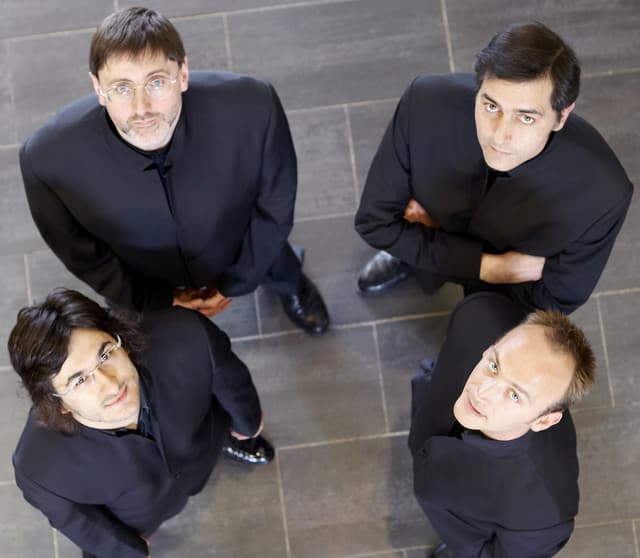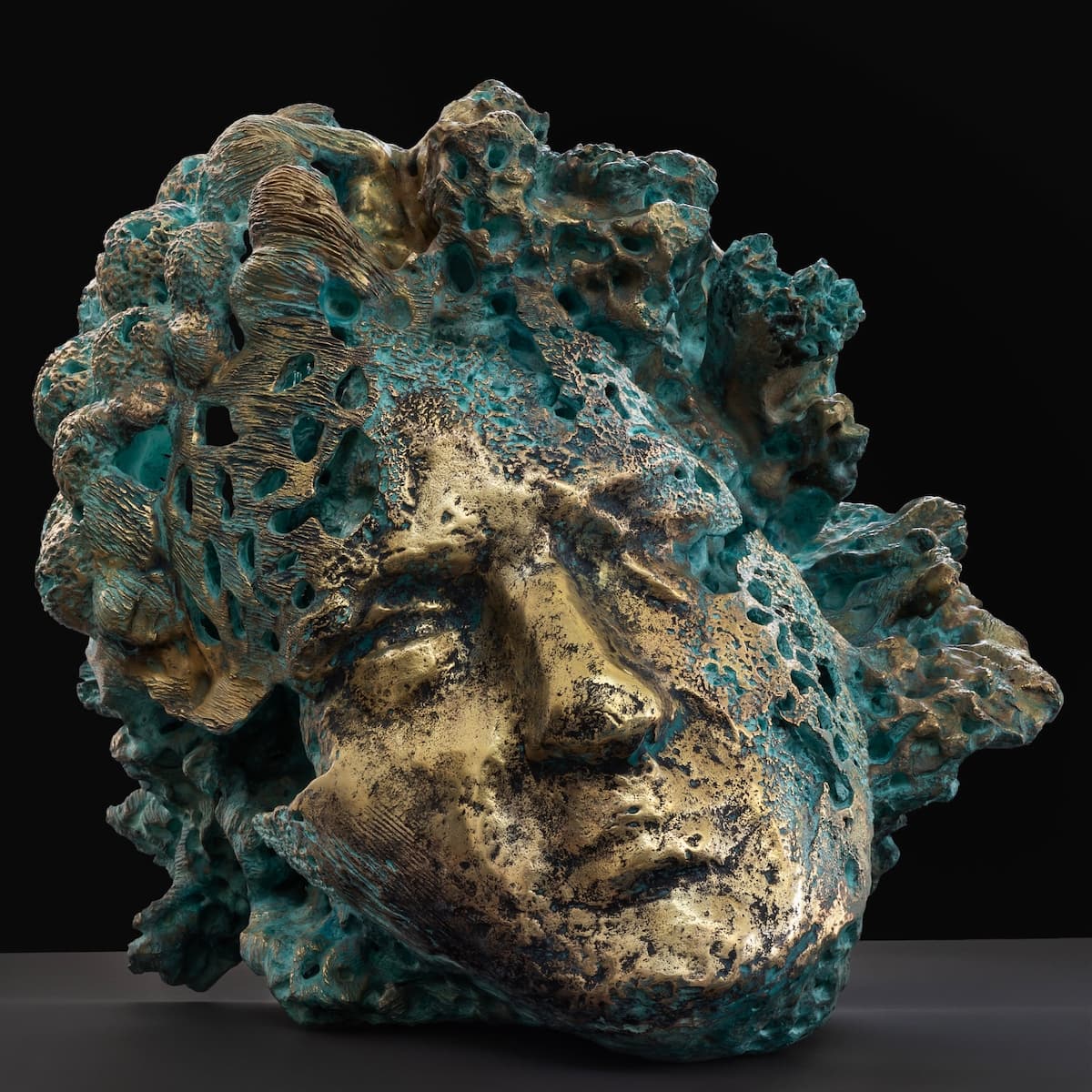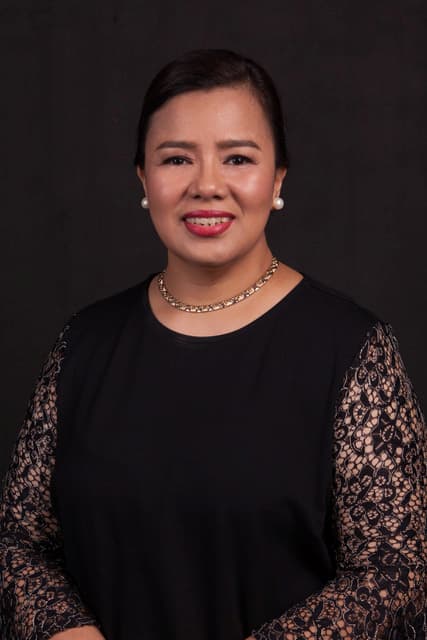Agnieszka Duczmal and Anna Duczmal-Mroz are a mother and daughter who are both successful conductors. Maestra Agnieszka founded the Amadeus Chamber Orchestra in Poznan, Poland, in 1968, which is now the official chamber orchestra of Polish Radio. The orchestra recently won the BBC Music Magazine Awards 2022 for their recording of orchestral works by Bacewicz, conducted by Agnieszka. Agnieszka is widely respected as a pedagogue and conductor and is considered a national treasure in Poland.
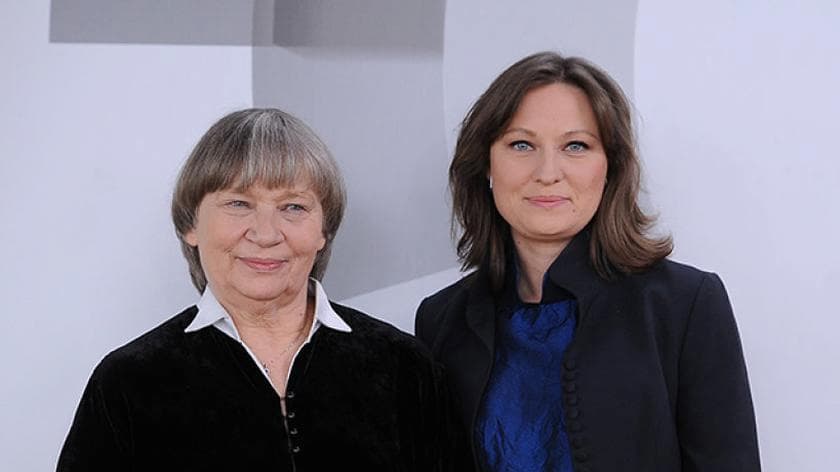
Agnieszka Duczmal and Anna Duczmal-Mroz
Anna, Agnieszka’s daughter, has been conducting the Amadeus Orchestra regularly for many years and has also taken charge of several recordings and international tours. Anna is currently the Taki-Alsop Fellow and made her debut with the Chicago Symphony in the summer of 2022. This season alone, Anna has two major debuts with A-list German State Orchestras in Mainz and Weimar. In this interview, I had the privilege of interviewing Maestras Agnieszka and Anna and sharing their stories and their newly released album with you.
Simon Laks: Poème for Violin & Chamber Orchestra
Nice to meet you both!
Maestra Agnieszka, you were the first female conductor to perform at La Scala in Milan. What was it like studying conducting back then?
Agnieszka Duczmal: For five years of conducting studies, I was the only woman among five men. My colleagues welcomed me very warmly and were full of respect for me. We lived in great friendship, and the professor cultivated my individual style, for which I am very grateful to him. Because my colleagues considered me outstanding, they came to me several times for “tutoring” in conducting.
You are the founder of the Amadeus Chamber Orchestra in Poznan, now the official chamber orchestra of Polish Radio. When you founded it in 1968, you were still a student at the Academy of Music. What made you find the orchestra? Were the initial members of the orchestra also students at the Academy?
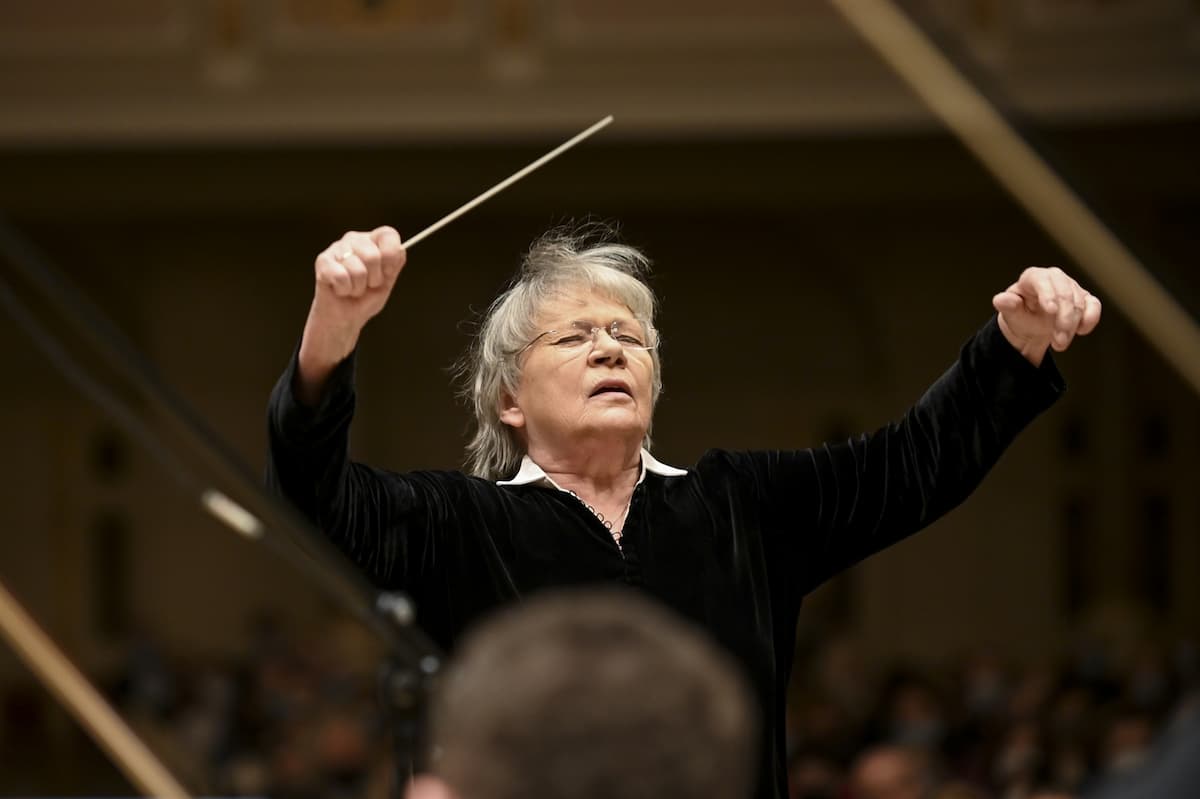
Agnieszka Duczmal © Jacek Mójta
Agnieszka Duczmal: Our university wanted students to be active, and they asked me if I would like to set up a student orchestra. I decided that this was a real “5 minutes” for me, that it was the greatest opportunity for a conductor – to form and lead his own orchestra. It was the most important decision in my life, and when I graduated, I decided to continue my young work. After receiving the Herbert von Karajan Silver Medal at the Berlin Festival (the previous year, I took fifth place – as the only woman – at the 4th International H.von Karajan Conducting Competition), I was offered employment with the Orchestra at the Polish Radio and Television, which made possible for me to spread my wings and become associated with this included the wonderful development of the Orchestra, many concert trips on various continents, from which we brought back delightful reviews.
You are a widely respected pedagogue, conductor, and a national treasure in Poland. Your story must inspire many musicians and women, including your daughter, Anna. What was your response when she decided to become a conductor like you? How have you been inspiring her (in your opinion)?
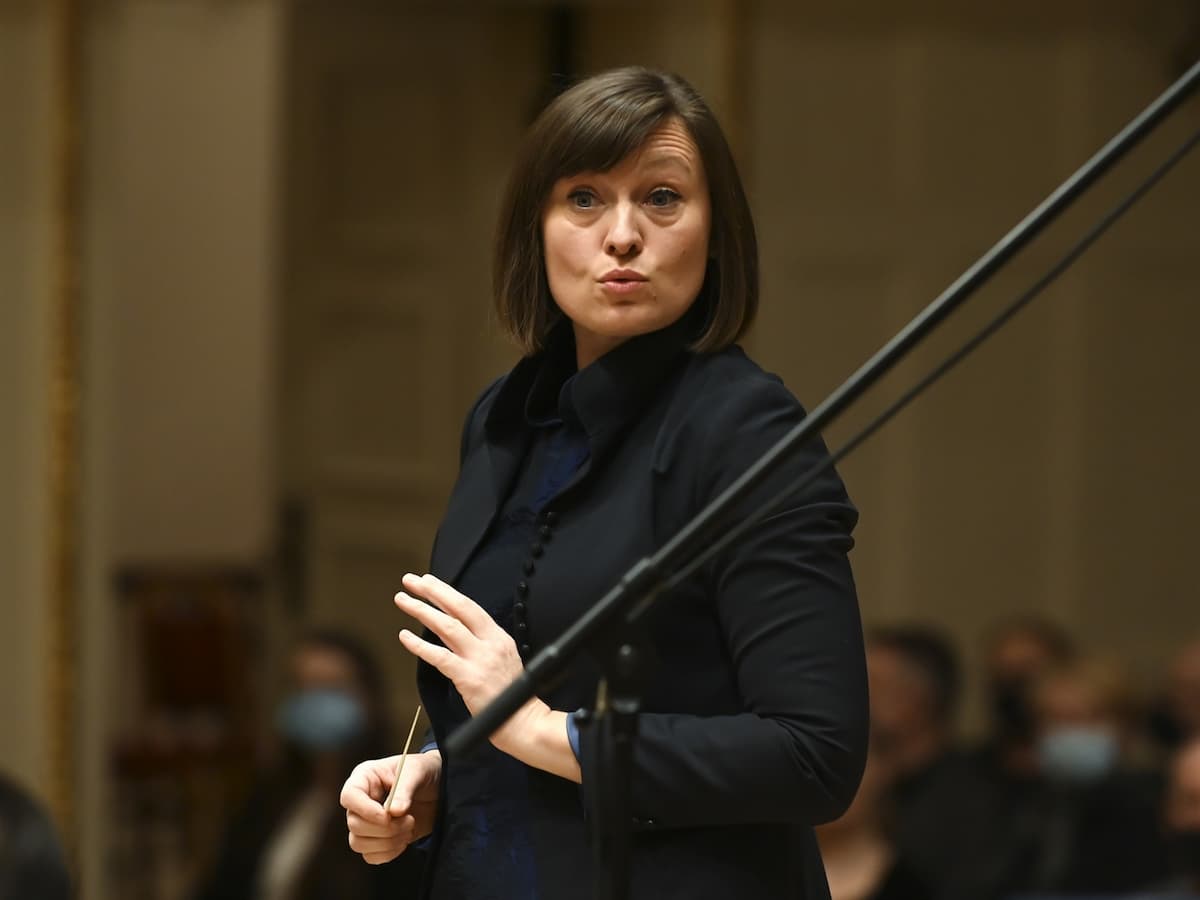
Anna Duczmal-Mroz © Jacek Mójta
Agnieszka Duczmal: Conducting is and always has been my passion. Once, when I was young, I practiced mountain climbing – it was my huge love. I wanted to touch their rough rock and overcome the difficulties of the path leading to the peak, from which I could admire the stunning views. Conducting is the path to the music I love. I try to talk to it and explain it to the listeners. For many years, I avoided giving interviews to journalists because I wanted them to stop treating me as a curiosity and only talk about what it’s like to be a female conductor. I wanted them to start treating me like a conductor, not a female conductor, so that I would have the same rights as my “often less interesting” colleagues. I know that I was an inspiration for many women and gave them the courage to pursue their dreams. With Anna, it was a bit different. She was born in my and my husband’s music, in the Amadeus Chamber Orchestra of the Polish Radio, and she suckled with her mother’s milk the love for music, especially chamber and symphonic music. As a violinist, she wanted to play in chamber groups. But it has long seemed to me that she has the character of a conductor. Only when Anna accidentally stood in front of the orchestra, raised her hands, and the music played along with her gesture she discovered that this was her path, her destiny. She called me frantically and said; Mom, that’s it! The sky opened up for me! And I felt very happy, even though I knew that the road ahead would be rocky. And I’m glad she’s still happy with the choice she made.
Ewelina Nowicka: Kaddish 1944 for Violin & Chamber Orchestra
Maestra Anna, being the daughter of a conductor, what was it like when you grew up? Did she inspire you to be a conductor? How so? How is your experience working with your mom in the Amadeus Chamber Orchestra?
Anna Duczmal-Mroz: Being a conductor’s daughter has always been so natural to me that I never felt it was something special. My mother simply went to work, gave concerts, and then talked about it. And I loved her stories about other countries, they stimulated my imagination, I was fascinated by the stories of people from other corners of the world, their completely different life experiences and stories. All this was closely related to the music that connected all these human stories. And for me, her profession in this respect was very unique. It also gave me the opportunity to grow naturally with the orchestra, permeate her feelings, and create music. As an adult, I only realized that the ethos of working with the orchestra and musical interpretations was a completely natural process for me, which I owed to my mother’s actions. In later years, when we started working together with Amadeus, we had to learn to find a common path because each of us is a little different and each of us goes our own way. But we are united by the orchestra, and we always had to think about the good of the ensemble. So, despite differences in thinking, we found a common path. After all, each of us has an extremely strong personality. Apart from Amadeus, I gave many concerts as a guest conductor around the world, which also helped me to build my position in my own nest.
How do you feel when you follow your mother, who is such an influential figure in modern music history? Do you find more pressure?
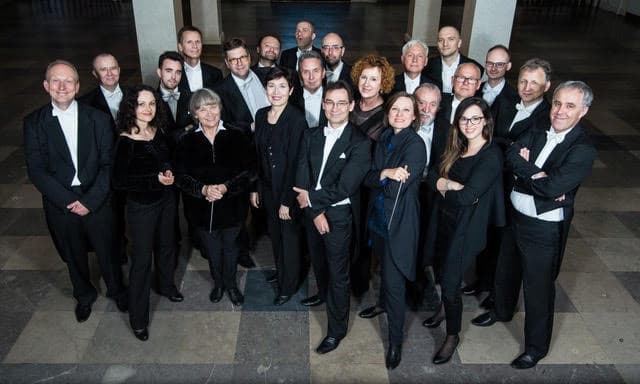
Amadeus Chamber Orchestra of Polish Radio
Anna Duczmal-Mroz: From the very beginning, an extremely strong pressure accompanied me. More was expected from me because I was my mother’s daughter and a woman. 20 years ago, it was still hitting the glass ceiling for today’s generation of conductors. I was always looked at more critically than other young conductors, precisely for family reasons. It was very difficult, so I concentrated on the music. That’s why I focused so much on working with orchestras around the world, where I was invited as a guest conductor. It built my internal strength and position and gave me undeniable experience, which I could translate into work with my orchestra. I felt that people abroad looked at me honestly – appreciating my value and conducting skills.
As a mother, would you like your children to be a conductor when they grow up?
Anna Duczmal-Mroz: I tried to instill a love of music in my son, but he chose a different path. Maybe three generations of conductors in the family are enough? Also, my grandfather was a conductor. It’s a very difficult profession, and you have to love it very much to dedicate yourself to it so much. Besides, someone has to go to our concerts.
Are there any challenges that you are facing as a female conductor?
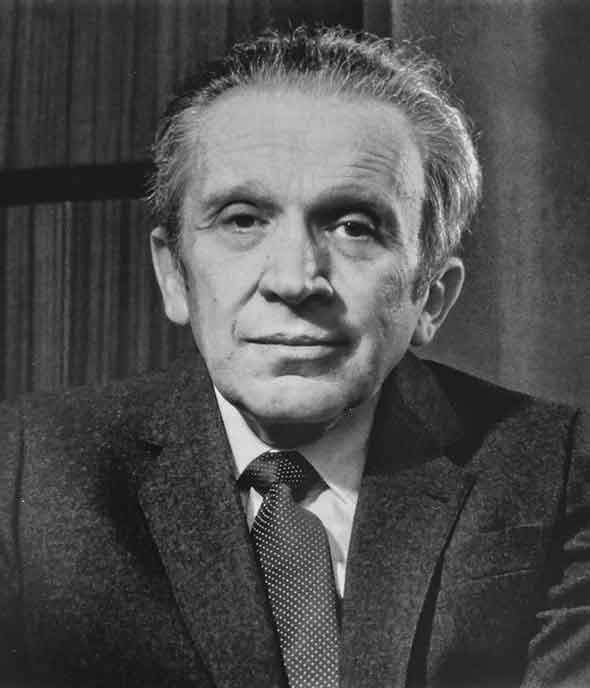
Mieczysław Weinberg
Agnieszka Duczmal: For a conductor, every day, every meeting with the score, every meeting with the orchestra, with every soloist, is a challenge. But at the same time, this is the greatest meeting because it is diverse in every aspect. It is an encounter with different personalities, different psyches, sensitivities, religions, spirituality, and realism. A real melting pot! In this melting pot, we are looking for understanding and a great community in music.
Anna Duczmal-Mroz: At this stage of my career, I no longer feel that I have as many challenges as in the beginning. At the beginning of my journey, I was the only young conductor who was so much working as a guest conductor with various orchestras in Poland. And I am aware that the beginnings of young female conductors were extremely difficult back then. It was breaking the glass ceiling. Only in the last five, maybe ten years have women conductors become “trendy,” and the doors of orchestras around the world have begun to open. There are so many programs for young conductors! This wasn’t the case in my time. So, the change that has occurred is a milestone and is completely different from the times when I started. Now, because so many programs have been created for young women, a gap has arisen for middle-aged women. Yet their experience cannot be passed over in silence and cannot be underestimated.
A conductor is a leader of the orchestra, do you agree? How do you feel your connection with the orchestral members is important?
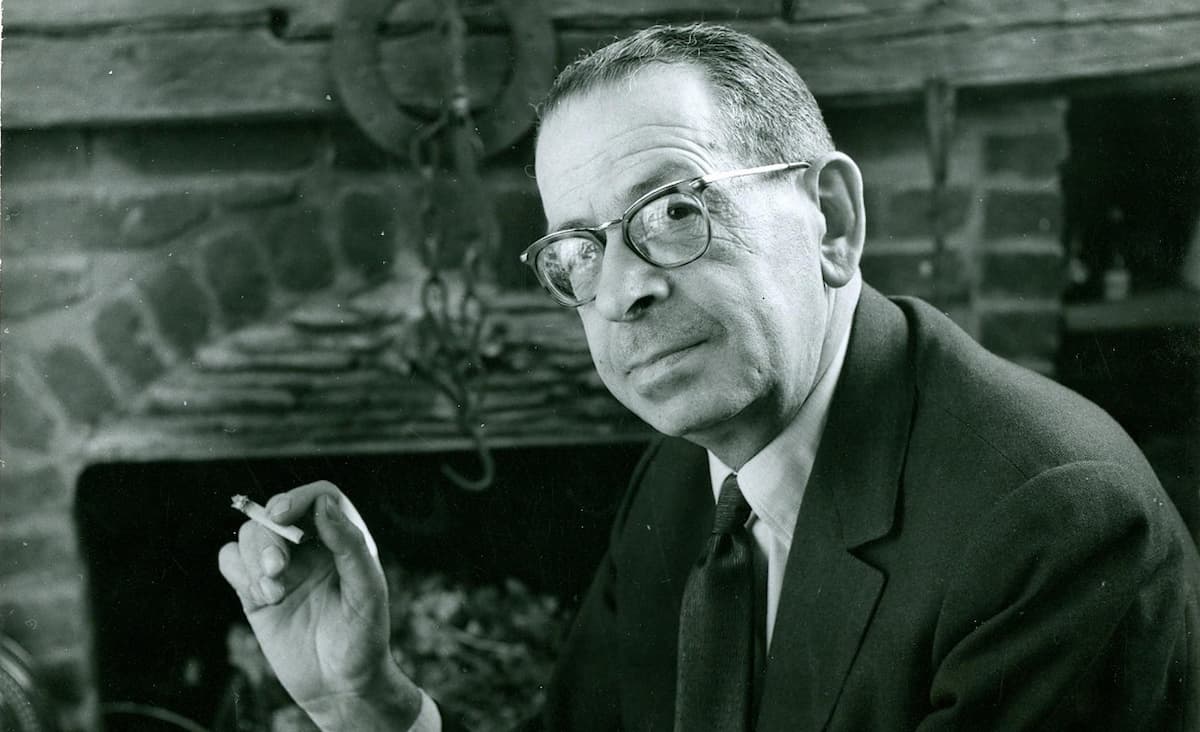
Simon Laks was the conductor of the Auschwitz-Birkenau orchestra during his time in the concentration camp
Agnieszka Duczmal: It used to be said that a conductor must be a corporal. But it’s not like that. Of course, there is no democracy in music, but this mainly concerns the organization of work and acceptance of the leader, who is the conductor. My musicians treat me as partners who present me with their skills and their sensitivity to phrases, and by listening to their playing, I have to direct their narrative according to my imagination so that they accept my vision with full conviction, understanding, and emotion. It is a very magical situation when I feel the music flowing from the instruments in my hands, and I can modulate it even through the most difficult rubato, and they, breathing together with me, paint the stories contained in the music performed as if with a brush. This is a very strong connection!!! It’s a kind of family, friendly bond. I believe that it is a conductor’s greatest joy and achievement. I’m happy because I’m experiencing it with my musicians.
Anna Duczmal-Mroz: Nowadays, a conductor is the one who, on the one hand, co-creates a musical work with his companions and, on the other hand, is the leader who connects, unites, and inspires. He combines leadership qualities, the qualities of a good strategist, a creative artist, a good psychologist, a person with excellent general knowledge, and a manager who organizes his artistic life and the ensemble he manages. It’s a very complicated profession. It is also important to create a unique bond between the conductor and the orchestra, which then translates into the atmosphere during creative work. You can hear all this during our concerts.
Mieczyslaw Weinberg: Traum von einer Puppe, 3rd movement of 3 Stücke für Violine und Kammerorchester
Their latest album, performed by Amadeus Chamber Orchestra of Polish Radio, features works by Mieczysław Weinberg (1919-1996), *Simon Laks (1901-1983), and a piece written by violinist soloist Ewelina Nowicka. All the pieces reflect the difficulties and are associated with the history of Poland. According to Maestra Anna,
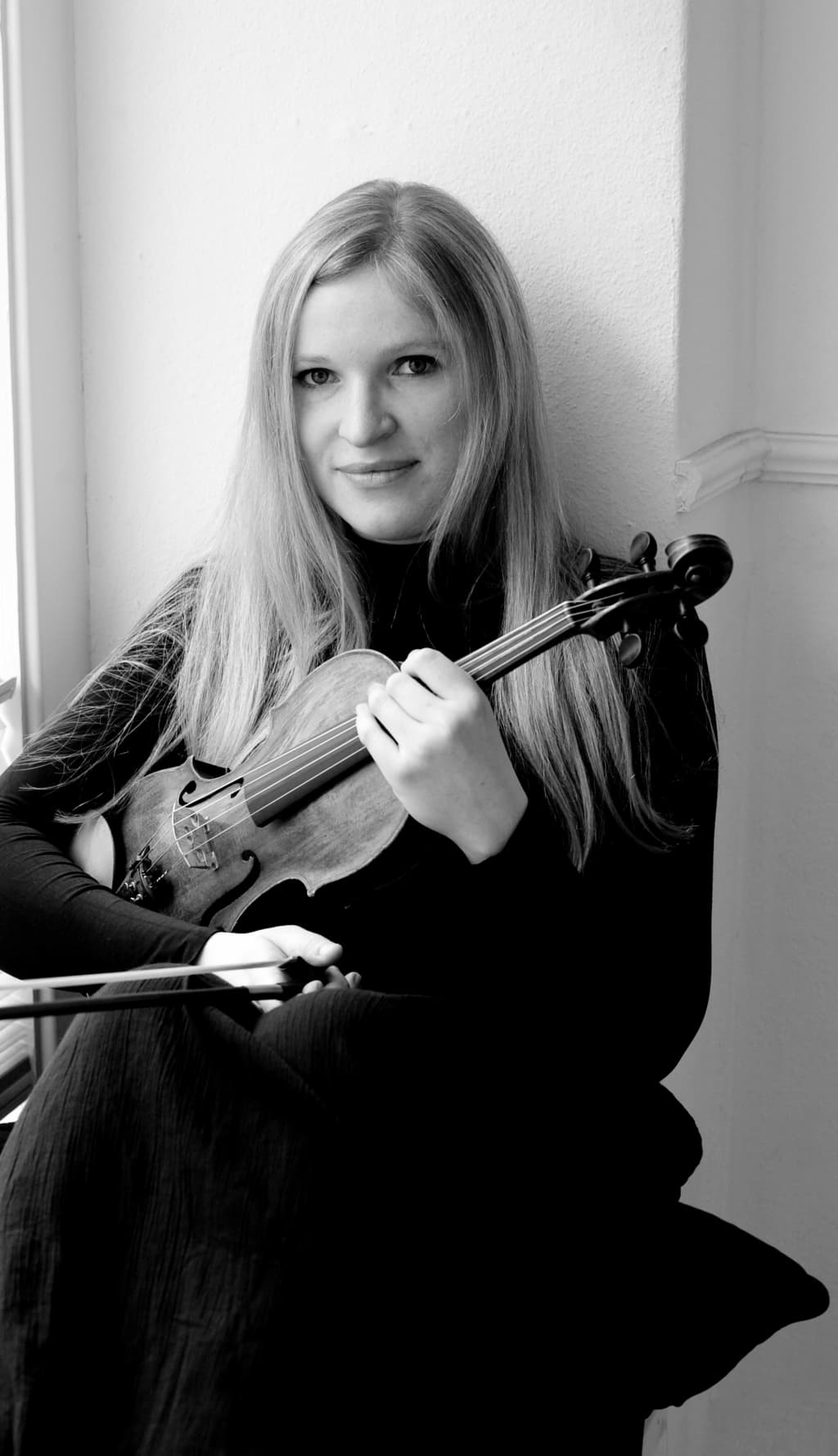
Ewelina Nowicka, 2010 © Steffen Gottschling
“The compositions of Weinberg and Laks perfectly reflect the moods and emotions of those times, both the difficult and the more fleeting ones. It shows all the shades of the experiences of both composers and their rich inner lives. It is an interesting journey into the depths of their soul and imagination. Kaddish by Ewelina Nowicka beautifully culminates and comments on the thoughts of both composers.”
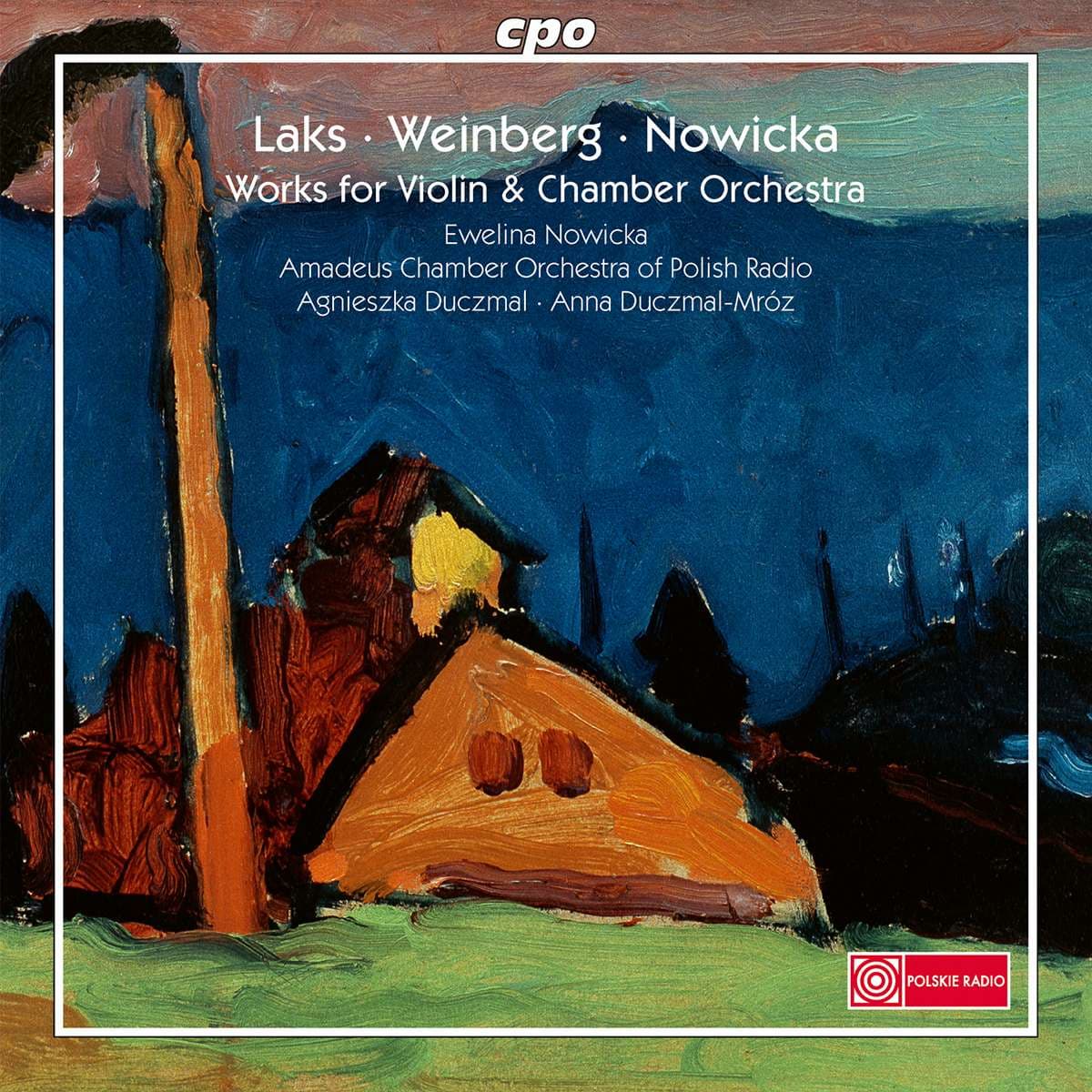
The album was released on the CPO label.
To learn about the orchestra and Agnieszka Duczmal.
To learn about Anna Duczmal-Mroz.
For more of the best in classical music, sign up for our E-Newsletter

